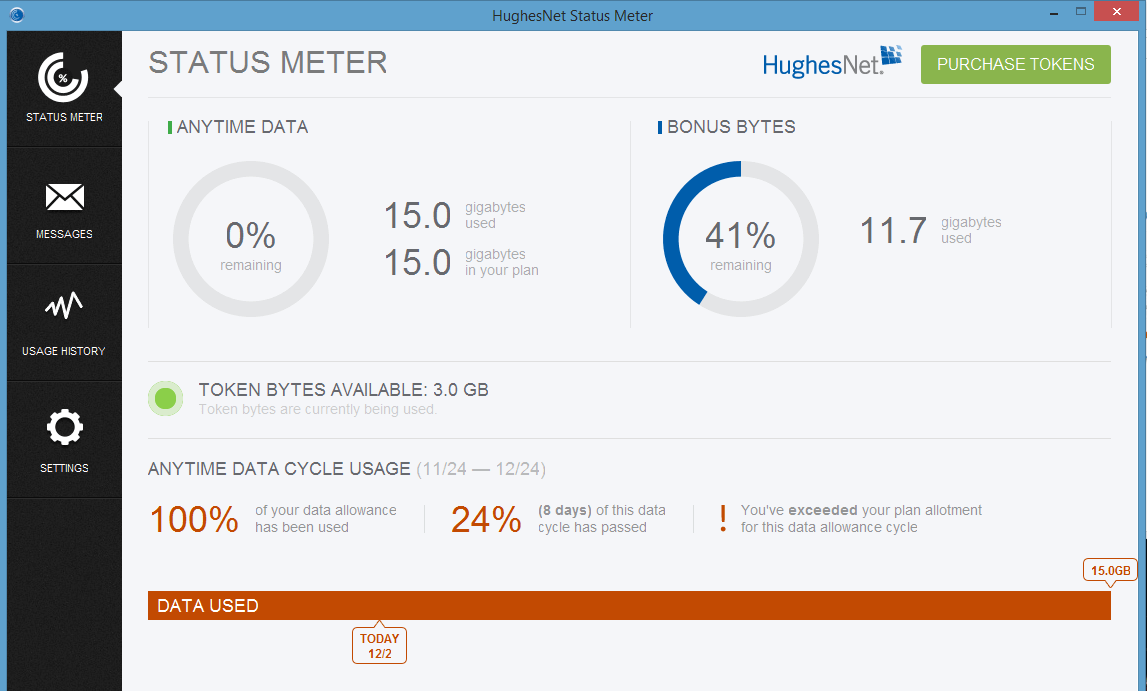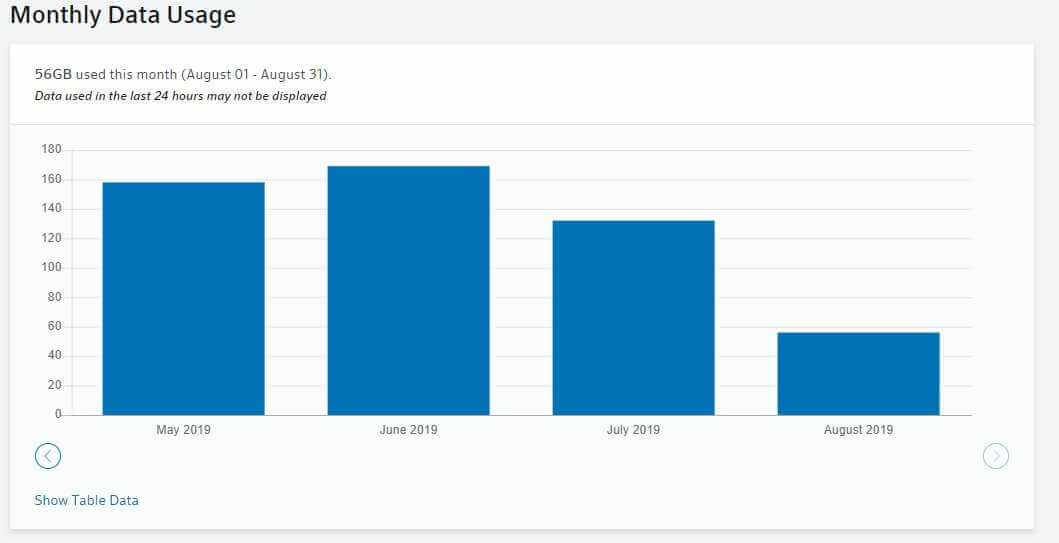Cookie Cutter or Managed?
Aug 17, 2019
A question we sometimes get at BusinessCom is why our prices are higher than some other big-name companies. Generally, this question comes from end-users or partners who are not very familiar with the industry.
Companies such as HughesNet and Viasat (formerly Exede), offer services that are intended for the consumer or residential market, rather than having been designed from the ground up specifically for enterprise clients such as businesses, government, schools, mining, petrochemical, banking, ISP and similar markets. Our name tells the story. BusinessCom Networks provides broadband satellite solutions for business-class or enterprise-class clients. We’ve been marketing alongside consumer-class services for a long time, and they haven’t really changed in years. They come out with new Gen 3,4,5 services, but customers tell us they see little difference, however their prices are lower and their advertised bandwidth rates are higher. Why the difference?
Unlimited Services
The first major difference is that our services are unlimited. Most residential services come with a data quota. They provide high bandwidth in hopes the client will quickly eat up the data quota and must then buy more capacity. Many residential customers buy services thinking they are going to watch Netflix or Hulu movies, but after a couple movies, they are surprised at how quickly they run out of data quota. Even a Windows upgrade overnight can take a big chunk out of the data quota! Our typical bandwidth rates for enterprise clients are not as high, but they are unlimited – no caps, data quota, limits, FAPs (Fair Access Policies), etc. Websites for these companies will tell you repeatedly to monitor your data usage. There is no need to do so with our services.
 HughesNet Data Usage Meter
HughesNet Data Usage Meter
Not long ago, most of these consumer class services would either cut off the service or throttle it down to dial-up speeds when the data quota was exceeded. Lately these companies have been advertising that their services are unlimited, however they will throttle or slow the site down from perhaps 25 Mbps at full performance, to 2 Mbps when the data quota has been exceeded. 2 Mbps sounds like a fair amount of bandwidth, and on BusinessCom services, it is; but there’s another factor involved, and that’s sharing, over-subscription or contention ratios. A service that is truly unlimited does not impose these restrictions.
Broadband services, practically by definition, are shared. Satellite bandwidth is expensive compared with fiber or microwave-based terrestrial services. That is because satellites have much shorter lifetimes. Lay fiber in the ground, or install a point-to-point radio link, and it may last for many decades, with the equipment on each end improving over time and delivering higher and higher bandwidth rates. Satellites cost hundreds of millions to build, launch and maintain, but have a usable life of perhaps 10 – 15 years, after which they are retired and replaced. Our article about inclined satellites in this blog describes the reason for this in more detail, but basically, they run out of the fuel that keeps them in position. See: bcsatellite.net/blog/is-inclined-orbit-satellite-right-for-your-business So, what does this have to do with sharing, and how much are they shared? What are contention ratios?
Oversubscription or Contention Ratios
Enterprise class broadband satellite services throughout the industry are typically shared or oversubscribed at rates such as 10:1 or 4:1. What this means is that if an operator delivers some amount of Mbps of bandwidth, it is shared by 10 or 4 sites at 10:1 and 4:1 sharing respectively. Sharing works because it leverages how typical internet access works. The user sends a short web request consisting of a handful of text characters in less than a second, and then the transmitter in their device is idle. They receive content from the web page in a matter of seconds, and then their receiver is idle. There is so much idle time that many devices can share the bandwidth. Of course, real-time applications like voice and video, which are a constant stream, require more bandwidth, and this must be included in the calculations used to estimate bandwidth needs, but much of the traffic on the web is intermittent and bursty. This means expensive satellite bandwidth can be provided at lower prices, by sharing it among multiple customers.
In our 15+ years of experience, we’ve determined, as have many other enterprise class broadband satellite service providers, that 10:1 is a good sharing ratio for most business applications. 4:1 sharing is proposed when there is a lot of real-time traffic like voice and video, larger networks, or those with high file transfer requirements. Most reputable service providers, like BusinessCom, will advertise their contention ratios. We offer Standard broadband satellite services at 10:1 and Premium at 4:1 (and can also provide dedicated or 1:1 service if required). Consumer class satellite providers don’t advertise their sharing ratios, but they are estimated to be anywhere from 20:1 to 40:1 or even higher. So, what happens when you are throttled down to 2 Mbps from 25 Mbps because you’ve used up your data quota and you are sharing that 2 Mbps with 30 or 40 other sites? You get very poor throughput, and the impact on the business can be severe, as we know from business customers, who having learned the hard way, are seeking out unlimited services.
The data quotas sound very large at first glance, but are they? Web pages continue to increase in size year after year, and customers end up running out of capacity in a week or two, or even faster, and then have reduced service till the next billing cycle or must purchase “tokens” that provide additional capacity. See: bcsatellite.net/blog/3mb-and-counting-web-page-size-and-performance. This author looked up how much bandwidth is used in a typical month in a one-person office. I use the internet daily for business, with occasional recreational use in the evening. This is a cable-based broadband service that is unlimited:

A popular consumer class service in the US offers services starting at $60/mo. for a 10 GB data plan, ranging to $150/mo. service with a 50 GB data plan. The author, a single user in a remote office has exceeded 50 GB halfway through the month, as of the writing of this article. None of this, at least this month so far, is Netflix, Hulu, Amazon Prime or similar movie traffic, though there is some Facebook and YouTube traffic included in that total. Imagine if there were 10 or 20 users in the office with similar bandwidth use. The service would have been throttled down to a couple Mbps of highly oversubscribed capacity, and business would be at a standstill… might as well take the rest of the month off…. Businesses cannot operate like that.
Consumer class services provide highly oversubscribed services, and restrictive data quotas. What other differences are there?
SLA
Unlike most residential class services that only agree to take your money, BusinessCom’s enterprise services come with an SLA (Service Level Agreement) with 99.5% uptime guarantee (aside from acts of nature), which means we must provide credits for downtime that exceeds this. That puts a lot more pressure on us to provide a consistent, high quality service and to support customers, so they have minimal downtime.
Some Other Comparisons
A popular consumer class provider has a series of FAQs discussing their offering. Let’s look at some of them.
1. Voice: The company claims to offer a residential telephone service with many features. They claim that it’s optimized to work through the satellite connection and does not affect the data allocation of the Internet plan. However, they note that this only applies to their own VoIP service. They say, “Other third-party VoIP services are not optimized to work through satellite connections. With third-party VoIP services, the quality of your call may be inferior, and your data usage will be affected.” Customers who elect another of the many VoIP providers available are cautioned “to carefully monitor their use of data” through the usage meter that comes with the service.
BusinessCom Networks supports 3rd party VoIP solutions (we have our own as well), and there is no need to monitor data usage. Assuming the customer buys a service with enough CIR (committed information rate), we can optimize the voice and provide business-class voice quality, and not restrict the client to our VoIP service if they have an existing provider or want another provider that offers different pricing or features.
2. VPN: “VPN is generally not recommended,” they say, pointing out that the overall speed is reduced by 50-70% due to data encryption. They point out that users may not be able to perform the activities that run within VPNs. They indicate that normal speeds will return once the user disconnects from a VPN if they attempt to use it anyway. This provider also says flat out: “Technical Support does not provide help to configure or troubleshoot issues associated with VPN clients.”
BusinessCom understands the VPN issues very well. We know which VPNs work well, and which ones have performance issues. We have workarounds for those issues, and BusinessCom WILL work with you to configure and troubleshoot VPN issues. We even provide a remote site management appliance with our hardware kit that supports VPNs that we will help configure.
3. Videoconferencing: The consumer class operator says you can use Skype and other platforms, but they encourage users to monitor their service plan to keep track of data quotas when conducting video conferences. They remind prospects of their Usage Meter to help track data usage to make the most of online activities. Video eats up data quotas very quickly, as it is a constant stream of data traffic.
There is no need to monitor data usage with BusinessCom’s iDirect Broadband services. The quality of the video will depend on how much bandwidth you have (we recommend 256 kbps per active Skype session in the upload and download), but you can use it as much as you want. Imagine working on the business deal of your career, talking with your client in a video conference, and suddenly you are throttled to a highly oversubscribed 2 Mbps and the video session becomes unusable, as the video degrades to pixilation and freeze frames, and the audio becomes too choppy to hear.
4. Video Streaming: Consumer class services will work with most of the leading providers of Internet video streaming. The provider mentions that their “video data saving function will automatically adjust to the standard definition, allowing you to watch up to 3 times more video than before.” Again, they remind you that you can “track the amount of data you use” using their usage meter. They also conveniently note that “In addition, you can purchase additional bandwidth as needed” with tokens, in this case advertising that additional data can be purchased for $3 per GB.
There is no need to monitor data usage on our iDirect Broadband services. We will not automatically adjust to the standard definition – that choice is left up to the user, however you must have enough bandwidth to get higher resolution. We will help you understand how much bandwidth is required. See: bcsatellite.net/blog/audio-video-over-satellite
These consumer class services claim to have a 25 Mbps download, but it’s shared with so many people that they must restrict how video is used to make sure it continues to work, and it’s going to eat up your data quota quickly in any case.
Rain Fade
Many of these consumer class services are on Ka band, which is more susceptible to rain fade than Ku band (and of course C band which is not affected by rain). While a residential customer may not mind having the service slow appreciably, or stop entirely during a rainstorm, most businesses prefer that the service stays up, so BusinessCom recommends Ku or C band services depending on the site location. We will generally recommend C band for tropical/equatorial regions to ensure that business operations continue throughout heavy rain. See: bcsatellite.net/blog/what-is-rain-fade
Managed Services
BusinessCom provides a managed service, that is not based on a “cookie-cutter” service model offered by consumer class services. We will work with the business customer to determine the best frequency – usually Ku or C band. Where consumer class services do not provide any guarantees – all services are provided on a “best effort” basis, we include CIR (committed information rate) as part of our services, guaranteeing that you will never drop below a certain minimum level. This guaranteed bandwidth can be specifically allocated to certain applications like VoIP to provide consistent, business-class voice quality. We will customize QoS (quality of service) for clients allowing them to prioritize important business traffic over recreational traffic such as Facebook, with limiting or blocking as dictated by business needs. Using tools that are provided as part of the service, we will identify what kind of traffic the site is passing, and then work with the client to manage the traffic to meet their business goals. Consumer services don’t do any of this. We even provide tools so that clients or partners can review current and historical throughput and protocol statistics on our portal. We provide hooks to SD-WAN and MPLS extensions, we protect against network intrusion attacks, provide remote diagnostics, and much more. The purpose of this article is to contrast the difference in basic broadband satellite service types, rather than go into extensive detail about add-on features not available on consumer class services.
There are user forum sites for consumer-class operators that you can seek out on the web, which we won’t provide here. We encourage potential clients who may be leaning toward a consumer class service to check them out. Generally, they are full of complaints regarding all the items listed above, and more.
For Partners
In all honesty, if all a client needs are email and basic browsing – with little video or few file transfers, then a residential consumer class service may be best for them. To partners, note that these clients also tend to be the least sophisticated and need the most handholding and support. They generally don’t have IT personnel on staff and will call in wanting help with things having nothing to do with the service. If their PC doesn’t work, it must be the VSAT service, right? And now you’re stuck on the phone, instead of commissioning new sites. Note as well, that with low pricing offered by consumer class services, you must consider the question of how many sites you will have to activate to make decent revenue. You will need a large force of installers to deploy large numbers of small, low margin clients, versus delivering higher cost enterprise class services that will produce more profit, and more opportunities fr add-on services, like setting up the office network.
To Summarize
BusinessCom’s enterprise class services are unlimited, with no caps, data quotas, FAPs or any of that nonsense. Our standard service agreement is month-to-month, but if you sign up for a year, we discount the hardware based on the service level the customer starts with. As with most things in life, you tend to get what you pay for. We are not going to make apologies for being more expensive than consumer class cookie-cutter services. Corvettes are more expensive than Ford Fiesta’s! Which would you rather drive?





